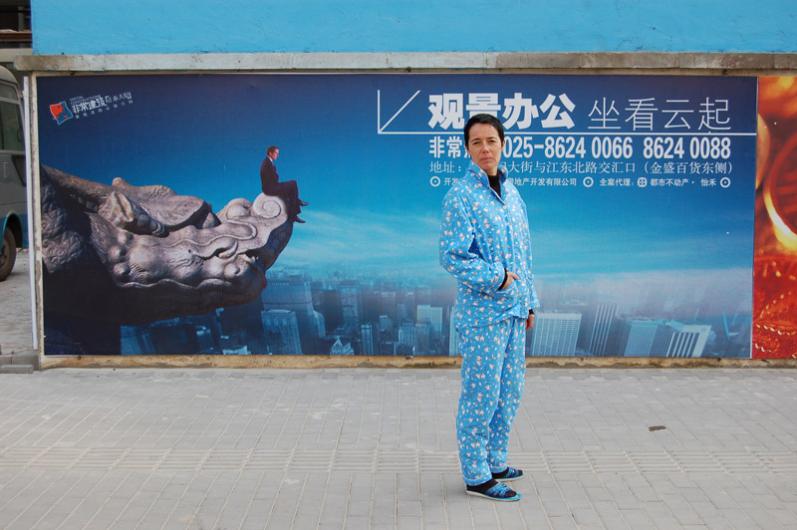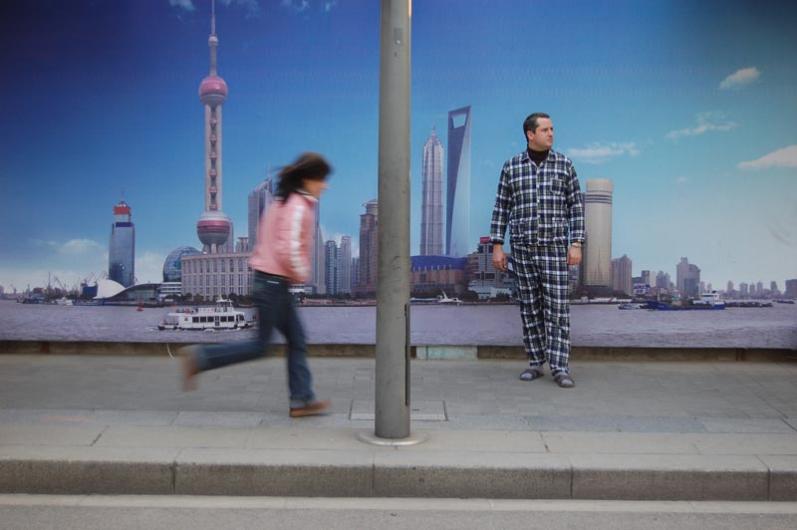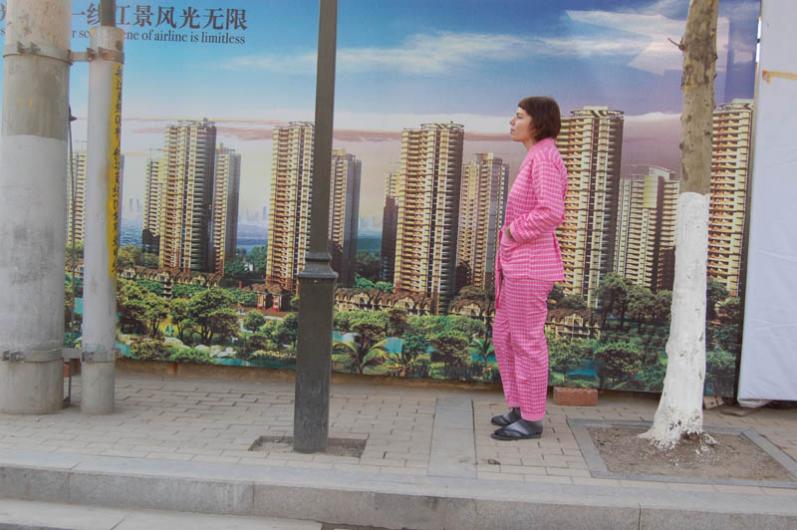
A video-project in the city space of Nanjing and Shanghai /China Early Heaven deals with a mirroring view towards the development of Chinese City life, reflecting the perspective on Chinese urban everyday: In the video, huge billboards around large construction sites, showing the promises of a modern city life - the play fields for a new middle class in the near future - serve as background for the public intervention: The three artists, Lieve D´hondt, Almut Rink and Christof Schlegel appear in Chinese pajamas in front of the self-chosen backgrounds. Waiting and wondering, in a way sleepwalking, they seem to be lost in transition. In the foreground Chinese people are passing, creating another layer in the piece. Showing the traffic in front, the discrepancy between promise and reality becomes obvious.
The stage-like setting of the video refers to two phenomenon’s that can be experienced in many Chinese cities: - The huge display-walls around the construction sites that announce Chinese urban future, anticipations of an ideal city life. - The habit of Chinese people walking in their pajamas in public urban space. The wearing of pajamas on the street already was an issue in Chinese newspapers: For the city councils, the wearing of pajamas in public - a kind of resistance against the partition of private and public - becomes an image political problem. However the pajama is a link to western culture and was taken over from the west some decades ago via television. The title “Early Heaven” on one hand refers to the anticipation of a better future and the promises and future expectations in a situation, where all dreams of Chinese society seem to be able to come true. Many images of these dreams are originating in the west and are used without being reflected. On the other hand, “Early Heaven” is an important Taoist sign in Feng Shui. The sign is often used on Chinese doors, mainly in combination with a mirror, meaning “To keep bad ghosts away”.

